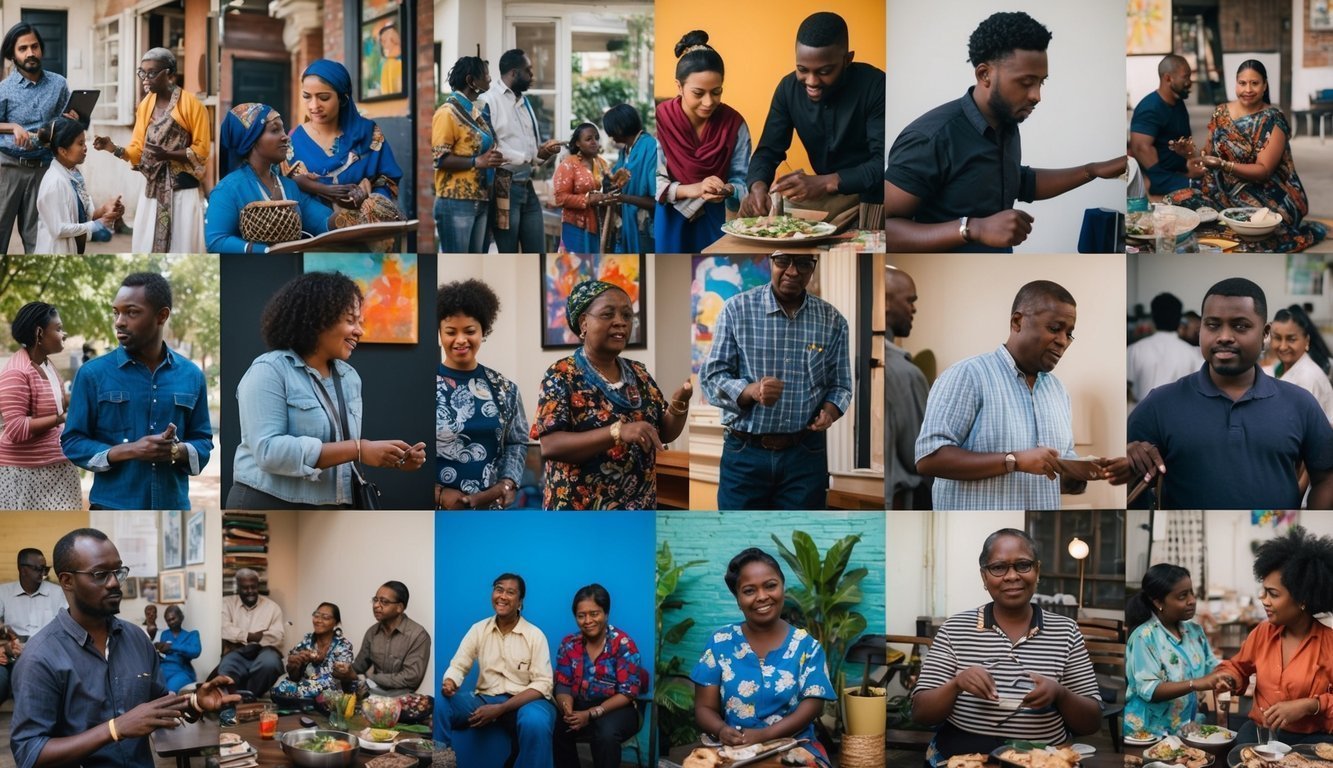PsychNewsDaily Publishers
100 Summit Drive
Burlington, MA, 01803
Telephone: (320) 349-2484
PsychNewsDaily Publishers
100 Summit Drive
Burlington, MA, 01803
Telephone: (320) 349-2484
Adult development involves psychological, cognitive, and social transformations, characterized by distinct stages such as early adulthood, midlife, and late adulthood, influenced by cultural and socioeconomic factors.

Adult development refers to the psychological, cognitive, and social transformations that individuals experience throughout their adult lives. This area of study delves into how people evolve and adapt over the years, highlighting important theories, developmental phases, and the distinctive journeys of emerging and young adults.
Robert Kegan’s theory of adult development outlines five stages of consciousness: impulsive, imperial, socialized, self-authoring, and self-transforming. These stages illustrate the progression of individuals in their capacity to derive meaning from their experiences.
Erik Erikson’s psychosocial theory identifies eight developmental stages, three of which occur during adulthood. These stages highlight the social challenges and conflicts that arise as people transition through life.
Additional theories investigate cognitive development, moral reasoning, and identity formation in adulthood. Each theory enriches the understanding of how adults evolve and grow over time.
The progression of adult development is typically categorized into distinct stages, each marked by unique challenges and opportunities for growth.
Early adulthood generally spans the ages of 20 to 40, centering on establishing a career and fostering intimate relationships.
Middle adulthood, from 40 to 65, often involves a reassessment of life goals and navigating shifts in family dynamics.
Late adulthood, commencing around 65, introduces new challenges related to retirement, health concerns, and legacy considerations.
These stages are fluid and can differ based on personal experiences and cultural backgrounds. Transitions between stages may occur gradually or may be signaled by significant life events.
Emerging adulthood is a newer concept in developmental psychology, spanning from the late teens to mid-twenties. This stage is characterized by identity exploration, instability, and a focus on personal development.
Young adulthood, typically ranging from the mid-twenties to early thirties, centers around establishing independence and making significant life choices. Key tasks in this phase include:
Research indicates that brain maturation continues well into an individual’s twenties, which influences decision-making processes and emotional regulation during this critical period of adulthood.

Aging significantly alters an individual’s psychological and social experiences. These changes affect one’s sense of self, mental well-being, and interpersonal relationships in deep and meaningful ways.
In late adulthood, individuals often experience transformations in their identity and self-concept. Older adults may witness shifts in their societal and familial roles, which can influence their sense of purpose. The transition into retirement can prompt a reevaluation of personal identity and worth.
Self-esteem can fluctuate as individuals navigate physical changes and shifts in social status. Nevertheless, many older adults express enhanced self-acceptance and the wisdom accumulated from life experiences.
Exploration of identity continues in late adulthood, where some may discover new interests or revisit long-held passions, leading to personal growth and greater self-awareness.
The mental health of aging individuals results from a complex interaction of biological, psychological, and social influences.
Issues such as depression and anxiety are common, often resulting from health challenges, loss of loved ones, or diminished independence.
Resilience is vital for sustaining psychological well-being. Many older adults develop effective coping mechanisms to confront life’s adversities, relying on their accumulated experiences and emotional regulation strategies.
Cognitive decline poses a concern, yet engaging in mentally stimulating activities and nurturing social ties can help maintain cognitive abilities. An optimistic outlook on aging is associated with improved mental health outcomes.
Social relationships attain new significance in late adulthood.
The quality of relationships may surpass quantity. Strong family bonds and friendships are crucial for emotional support and overall well-being.
Interdependence becomes more evident as older adults may require help with daily activities. This transition can be challenging yet presents avenues for meaningful interactions and mutual support.
Loneliness poses a serious issue for many older adults, especially those who have lost partners or live far from family. Engaging in community activities and social programs can alleviate isolation and enhance feelings of belonging.
Intergenerational connections can be especially enriching, allowing older adults to impart wisdom and experiences while staying connected to younger generations.

Adult development is marked by significant life transitions and milestones that shape personal growth and identity. These transitions frequently align with critical life stages, presenting new challenges and opportunities for self-exploration and personal transformation.
Midlife signifies a crucial phase of psychological development, where many individuals experience an increased drive for self-reflection and authenticity.
The concept of individuation gains prominence as individuals seek to distinguish their own identities from societal norms and familial expectations. This journey often includes:
Some may experience a “midlife crisis,” marked by abrupt changes in behavior or lifestyle. However, research indicates that more gradual and meaningful changes are typical.
Retirement signifies a significant life transition that affects social roles and personal identity. Moving from a career-oriented lifestyle to a more flexible one can yield both liberating and daunting experiences.
Key elements of the retirement transition encompass:
Many retirees find fulfillment through:
Successfully navigating retirement typically involves retaining a sense of purpose and fostering social engagement.
As individuals progress into later life stages, awareness of mortality becomes more pronounced, prompting reflections on personal legacy and the desire to make a lasting contribution.
In this context, individuals may concentrate on:
Contemplating mortality can also foster:
For many, embracing the reality of mortality encourages personal growth and a stronger sense of purpose during their remaining years.

The development of adults is deeply influenced by cultural norms, social frameworks, and individual identities. These elements interweave to establish distinct developmental paths across various populations.
Cultural environments significantly shape adult developmental processes. Different cultures highlight diverse milestones and expectations for adulthood. Western societies, for example, often emphasize personal achievement and autonomy, while Eastern cultures may prioritize family duties and interdependencies.
The notion of the socialized mind illustrates how cultural norms and expectations are internalized by individuals. This internalization plays a critical role in shaping personal ambitions, values, and actions throughout adulthood.
Cultural influences also extend to cognitive development. Different problem-solving methods, decision-making approaches, and even time perceptions vary widely across cultures, affecting how adults tackle challenges and seize opportunities.
Gender, race, and ethnicity are significant factors in adult development. These aspects influence the social experiences, opportunities, and challenges faced by individuals throughout their lives.
Gender socialization affects career paths, family roles, and the formation of personal identity. Expectations and challenges often vary for women and men across different cultures, impacting their developmental journeys.
Racial and ethnic identities inform experiences with discrimination, resource accessibility, and cultural values. These components can impact stress levels, coping strategies, and overall well-being during adulthood.
Understanding intersectionality is essential to grasp how multiple identities work together to create unique developmental experiences. A woman of color, for instance, may confront challenges different from those faced by both white women and men of her race.
Socioeconomic status profoundly shapes the course of adult development. It affects access to education, healthcare, and job opportunities. Generally, higher socioeconomic standing correlates with more resources available for personal growth and self-fulfillment.
Financial stability influences key life decisions, such as marriage, parenthood, and retirement planning. Economic pressures may either hasten or postpone conventional adult milestones.
Educational attainment impacts cognitive development and problem-solving abilities. Adults with higher education levels typically exhibit more sophisticated thinking patterns and greater adaptability to change.
Social class further affects one’s cultural capital. It shapes social networks, leisure pursuits, and lifestyle choices, contributing to the formation of self-authoring and self-transforming mindsets in adulthood.
Job opportunities and job satisfaction are integral to adult identity formation and overall well-being. Career advancement often parallels pivotal milestones in personal development.